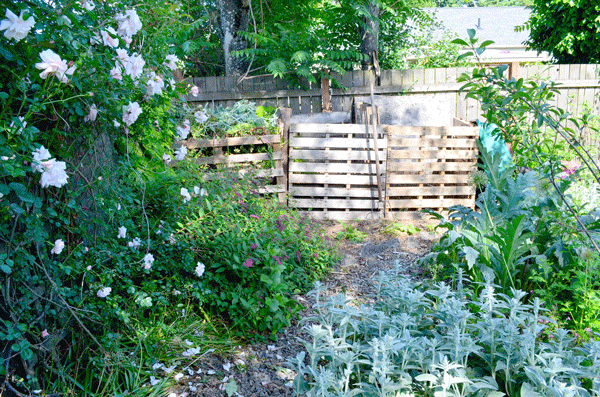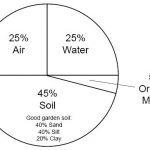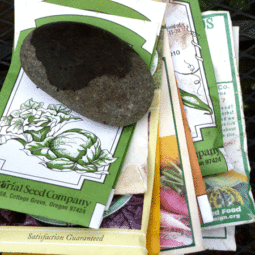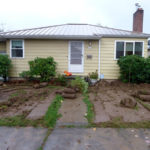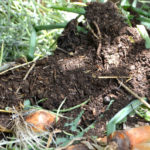There is one garden chore that doesn’t take a break in the wintertime: making compost. It’s a good excuse to get outside, get some exercise and prepare for the springtime garden.
I have loved our three bin compost system, which gives us ample space to process all the garden waste, kitchen scraps and used chicken bedding our homestead produces. All three bins are just where they should be: one is broken down and ready for the garden, another is semi-finished and the final bin still has freshly piled bedding on top.
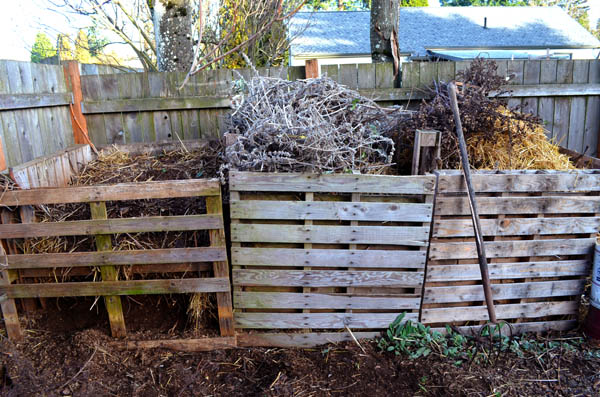
Wintertime three bin compost system still working away (left side is almost finished, middle is in progress, and right is the freshest pile)
Ideally, once a month I get out there and turn the piles, but in reality it happens more like every 2-3 months. When you turn the compost piles you will jump start the decomposition process in a couple important ways.
First, you are breathing fresh air into the pile. The micro organisms that devour all that organic matter and turn it into finished compost need oxygen. Fresh oxygen helps them stay active and multiple, so you have even more microscopic hard workers turning your homestead waste into garden compost. They also use pockets of air to live, so turning the pile creates more space for more microorganisms.
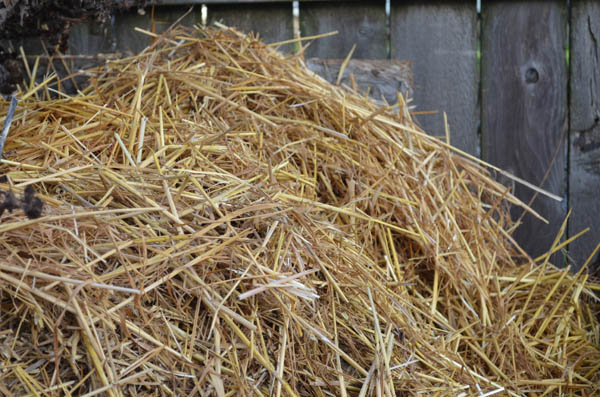
The freshest compost pile topped with used chicken bedding. Always top off your piles with a layer of “browns” to reduce the attraction to pests like rats and mice.
Second, you are dispersing the microorganisms when you turn the pile. You may have noticed the center of the pile is always warm, even in the dead of winter. That’s where most of your microorganisms are working. When they decompose the organic matter, it generates heat. As you turn the pile, you are redistributing those hard workers throughout the pile so they keep working on everything available in the pile for them to decompose.
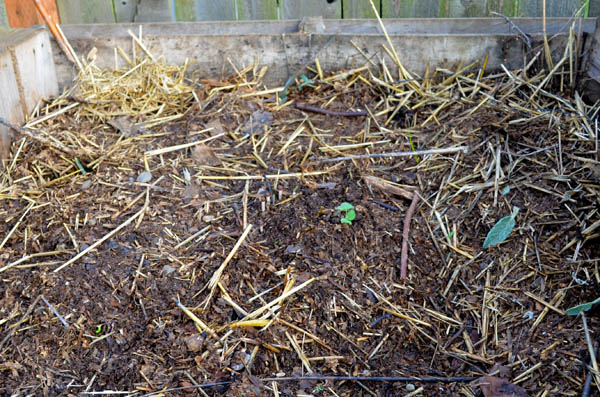
The almost-finished-pile in need of a good turning. The bottom 2/3’s is finished, but the top still has some rough material.
And finally, you are continuing to mix up your material so it breaks down evenly. It’s not ideal to mix in “finished compost” with big chunks of straw still in it. Mixing it up will increase the textural quality of your finished compost.
I am always surprised at how quickly I can notice a difference after turning my compost piles. Often, it’s about a week or two later that the pile seems to have shrunk in size from an increase in decomposition.
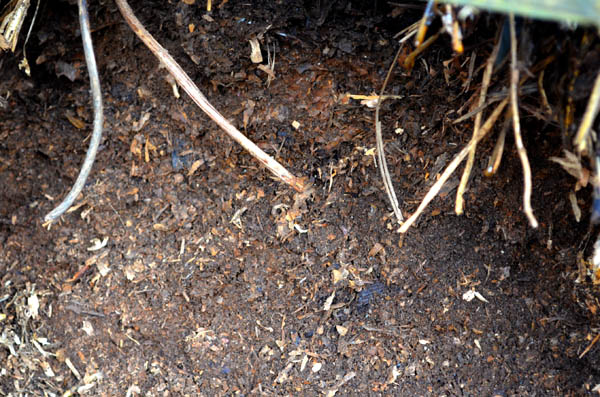
Finished compost at the bottom of the pile
Everyone’s homestead is a little bit different and I would love to hear about yours. Are you intensively composting and have some tips to share that work for you? Or do you have an alternative method to composting that allows you to replenish your garden soil? Tell me about it in the comments below!
Some helpful past posts:
- Using pallets to setup a three bin compost system
- Making good garden soil through sheet mulching
- When to harvest your compost
